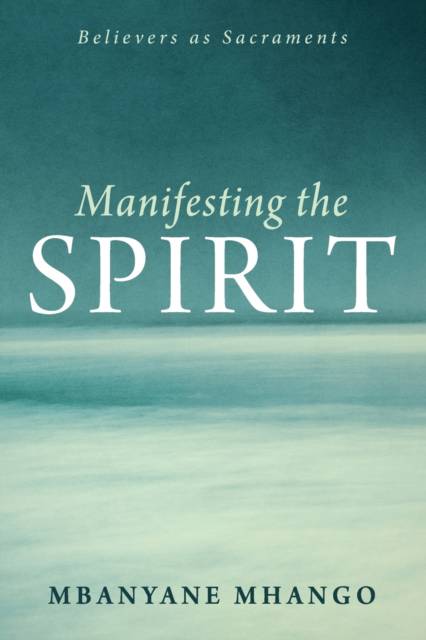
- Afhalen na 1 uur in een winkel met voorraad
- Gratis thuislevering in België vanaf € 30
- Ruim aanbod met 7 miljoen producten
- Afhalen na 1 uur in een winkel met voorraad
- Gratis thuislevering in België vanaf € 30
- Ruim aanbod met 7 miljoen producten
Zoeken
€ 43,45
+ 86 punten
Uitvoering
Omschrijving
Fewer subjects have generated intense debate in Christian thought and practice than sacraments. A reductionist view of the term "sacrament" often causes this debate and engenders tension between the so-called "sacramental" and "non-sacramental" churches largely based on whether one views the Water Baptism and the Lord's Supper as ordinances or as sacraments (means of encountering God). Drawing from the theological view that Christ is the primordial sacrament of the encounter with God, this book posits that all believers are sacraments of an encounter with God. This claim has ecumenical import. Conversion, Baptism, the Lord's Supper, the Empowerment, Gifts, and Fruit of the Spirit, Worship, Testimonies of Triumphs or Sufferings, Eschatological Hope, etc., enable believers to manifest the Spirit. Pentecost inaugurated all believers as both macrocosmic and microcosmic sacrament(s). The notion of sacramentality of believers intersects with the theological triad of Orthodoxy, Orthopraxy, and Orthopathy.
Specificaties
Betrokkenen
- Auteur(s):
- Uitgeverij:
Inhoud
- Aantal bladzijden:
- 254
- Taal:
- Engels
Eigenschappen
- Productcode (EAN):
- 9781666706284
- Verschijningsdatum:
- 30/09/2021
- Uitvoering:
- Paperback
- Formaat:
- Trade paperback (VS)
- Afmetingen:
- 152 mm x 229 mm
- Gewicht:
- 344 g

Alleen bij Standaard Boekhandel
+ 86 punten op je klantenkaart van Standaard Boekhandel
Beoordelingen
We publiceren alleen reviews die voldoen aan de voorwaarden voor reviews. Bekijk onze voorwaarden voor reviews.











